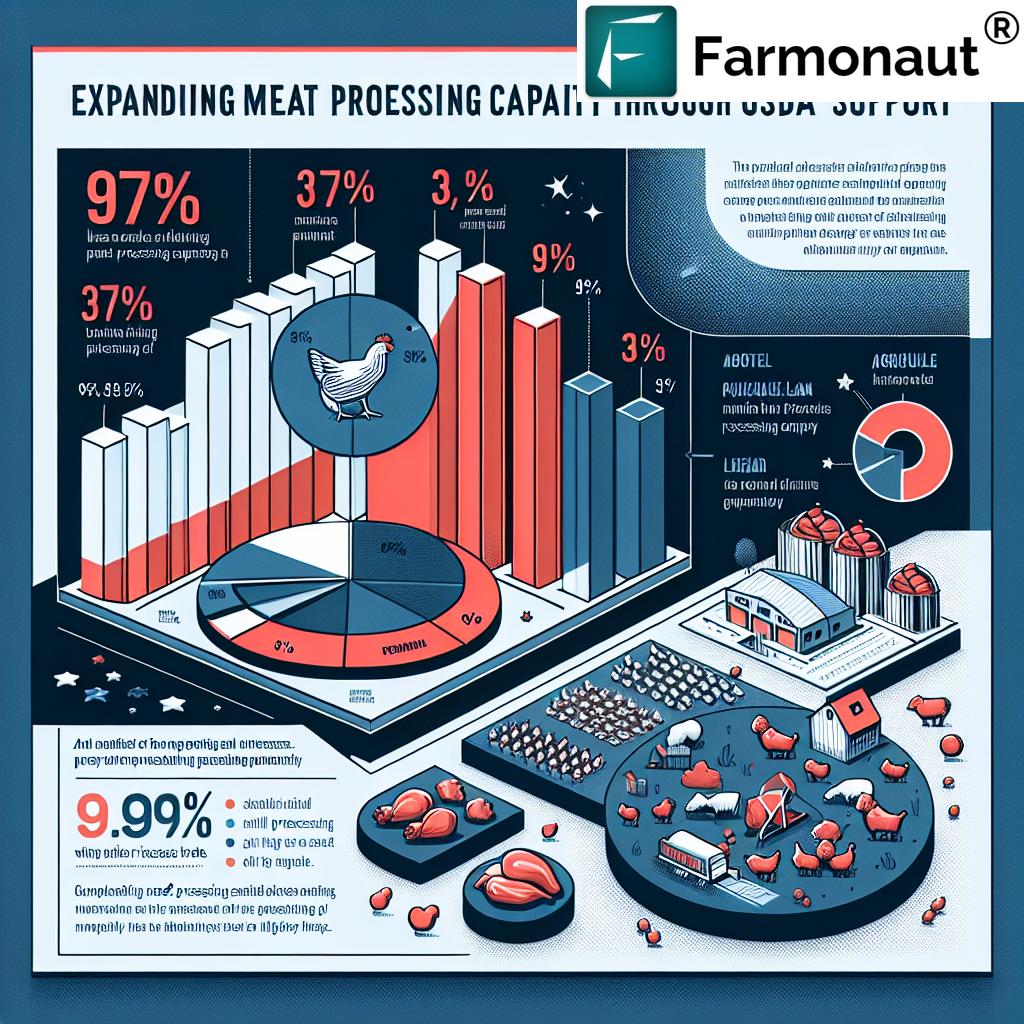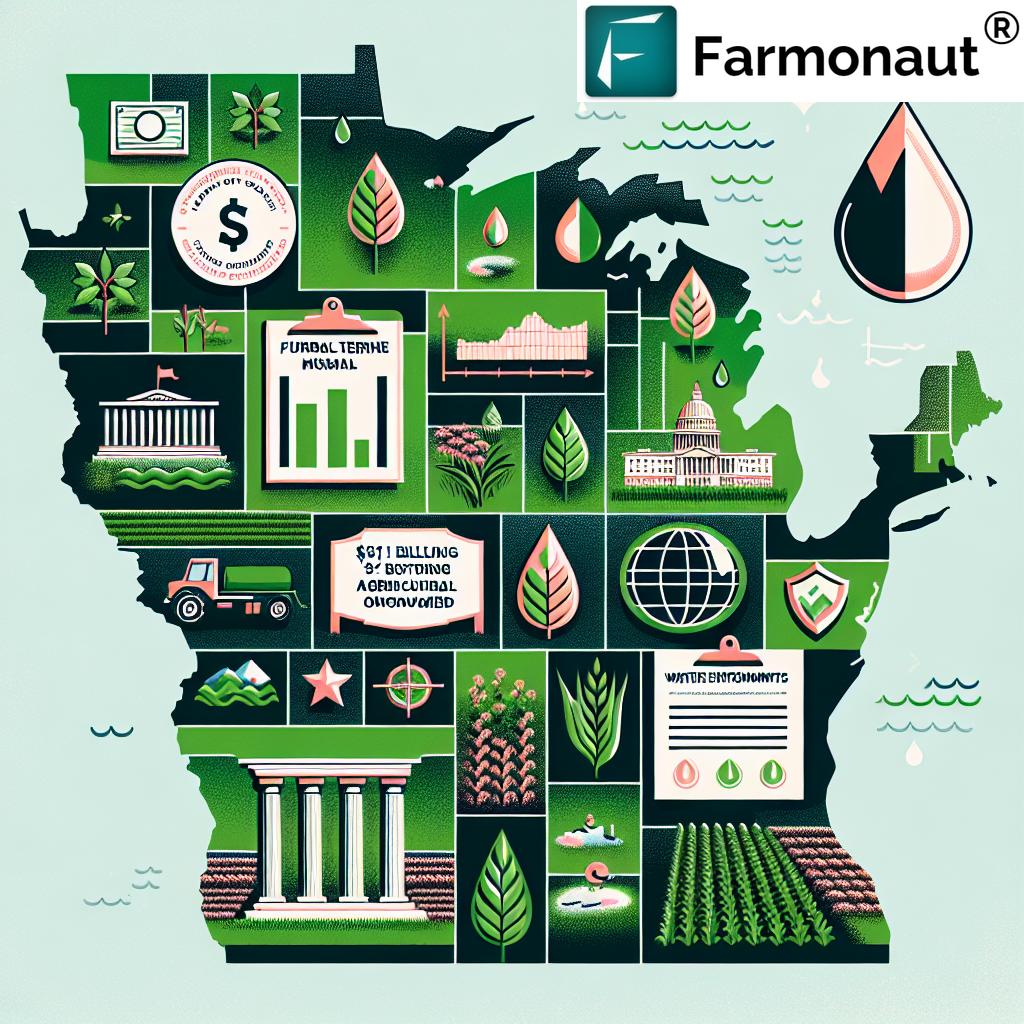Unveiled: USDA’s Bold Defense of Meat Processor Loans Amid Pure Prairie Poultry Collapse

DES MOINES, Iowa – In a bold move that has sent ripples through the agricultural sector, Agriculture Secretary Tom Vilsack has stepped forward to defend the USDA’s oversight of its loan guarantees and grants to small- and mid-sized processors. This staunch defense comes in the wake of a controversial shutdown of an Iowa broiler processor that has left the industry reeling and lawmakers demanding answers.
The Pure Prairie Poultry Predicament
The epicenter of this unfolding drama is the collapse of Pure Prairie Poultry, a processor that received substantial support through USDA loan guarantees and grant programs. The shutdown of their northern Iowa facility at the end of September has had far-reaching consequences:
- 1.3 million healthy chickens on 13 farms in Iowa faced culling
- Growers in Iowa, Minnesota, and Wisconsin were left scrambling to care for approximately 2 million chickens
- The Iowa Department of Agriculture and Land Stewardship (IDALS) was forced to intervene
This situation has not only highlighted the vulnerabilities in the poultry industry but has also sparked a heated debate about the effectiveness of USDA meat processor loans and the agency’s oversight mechanisms.
The USDA Meat Processor Loan Controversy
At the heart of this controversy lies the $45.6 million provided to Pure Prairie Poultry through USDA programs. This substantial investment was part of a broader initiative by the Biden administration to expand meat processing capacity across the nation. The breakdown of funds included:
- A loan guarantee of $38.7 million
- A grant of $6.9 million
These figures have now become the focal point of scrutiny, with Republican lawmakers from the affected states demanding accountability. The situation has escalated to the point where GOP leaders on the U.S. House and Senate Agriculture Committee have formally written to Secretary Vilsack, seeking answers about the USDA’s oversight of its loan guarantee and grant programs.

Tom Vilsack Defends USDA Loan Guarantees
In a press conference held on Thursday, Secretary Vilsack mounted a robust defense of the USDA’s agricultural loan portfolio. His key arguments included:
- The Pure Prairie Poultry case is “an unusual circumstance” among over 400 funded projects
- A total investment of $1.4 billion, including USDA funds, investor and lender contributions
- An impressive 97% success rate in USDA’s overall $250 billion loan portfolio
Vilsack’s defense underscores the USDA’s commitment to supporting small and mid-sized processors while maintaining a robust and successful loan program. However, the Pure Prairie Poultry collapse has undeniably cast a shadow over these efforts.
Pure Prairie Poultry Shutdown Impact
The repercussions of the Pure Prairie Poultry shutdown have been severe and multifaceted:
- Farmers resorting to offering free chickens to the public
- IDALS’s efforts to find alternative processors thwarted by creditors in court
- Potential long-term effects on local economies and the poultry supply chain
This crisis has highlighted the need for robust poultry industry crisis management protocols and raised questions about the resilience of smaller processors in the face of market pressures.
Agricultural Loan Oversight Debate
The Pure Prairie Poultry case has ignited a broader debate about agricultural loan oversight. Key points of contention include:
- The adequacy of current oversight mechanisms for USDA grant programs
- The balance between promoting industry growth and managing financial risks
- The need for more stringent criteria in awarding loan guarantees to processors
This debate is likely to shape future policy discussions and potentially lead to reforms in how the USDA manages its loan and grant programs for the meat processing sector.
Small Processor Funding Challenges
The collapse of Pure Prairie Poultry has brought to light the unique challenges faced by small and mid-sized processors in securing and managing funding. These challenges include:
- Higher operational costs compared to larger, established processors
- Greater vulnerability to market fluctuations
- Limited access to capital outside of government programs
Addressing these challenges will be crucial for the USDA as it continues its efforts to diversify and strengthen the meat processing industry.
USDA Agricultural Loan Portfolio Performance
Despite the setback with Pure Prairie Poultry, the overall performance of the USDA’s agricultural loan portfolio remains strong. Secretary Vilsack emphasized:
- A 97% success rate across the entire loan portfolio
- Positive impacts on meat processing capacity nationwide
- Continued support for industry diversification and growth
These statistics suggest that while the Pure Prairie Poultry case is significant, it is not indicative of systemic issues within the USDA’s loan programs.
Looking Ahead: Implications for the Poultry Industry
As the dust settles on the Pure Prairie Poultry collapse, several key questions emerge for the future of the poultry industry and USDA’s role in supporting it:
- How will this incident affect future loan guarantees and grants for small processors?
- What additional safeguards might be implemented to prevent similar situations?
- How can the USDA balance its goals of expanding processing capacity with responsible financial management?
The answers to these questions will likely shape the landscape of meat processing in the United States for years to come.
As the agricultural sector grapples with these challenges, innovative solutions and technologies are becoming increasingly important. Farmonaut offers cutting-edge tools for agricultural monitoring and management, which could prove invaluable in navigating the complexities of modern farming and processing operations.
For those interested in leveraging satellite data for agricultural insights, the Farmonaut API provides access to a wealth of information. Developers can explore the API documentation for integration details.
Stay informed and manage your agricultural operations efficiently with Farmonaut’s mobile apps:
As the agricultural community continues to navigate these challenging times, staying informed and equipped with the latest technology will be key to resilience and success.
















